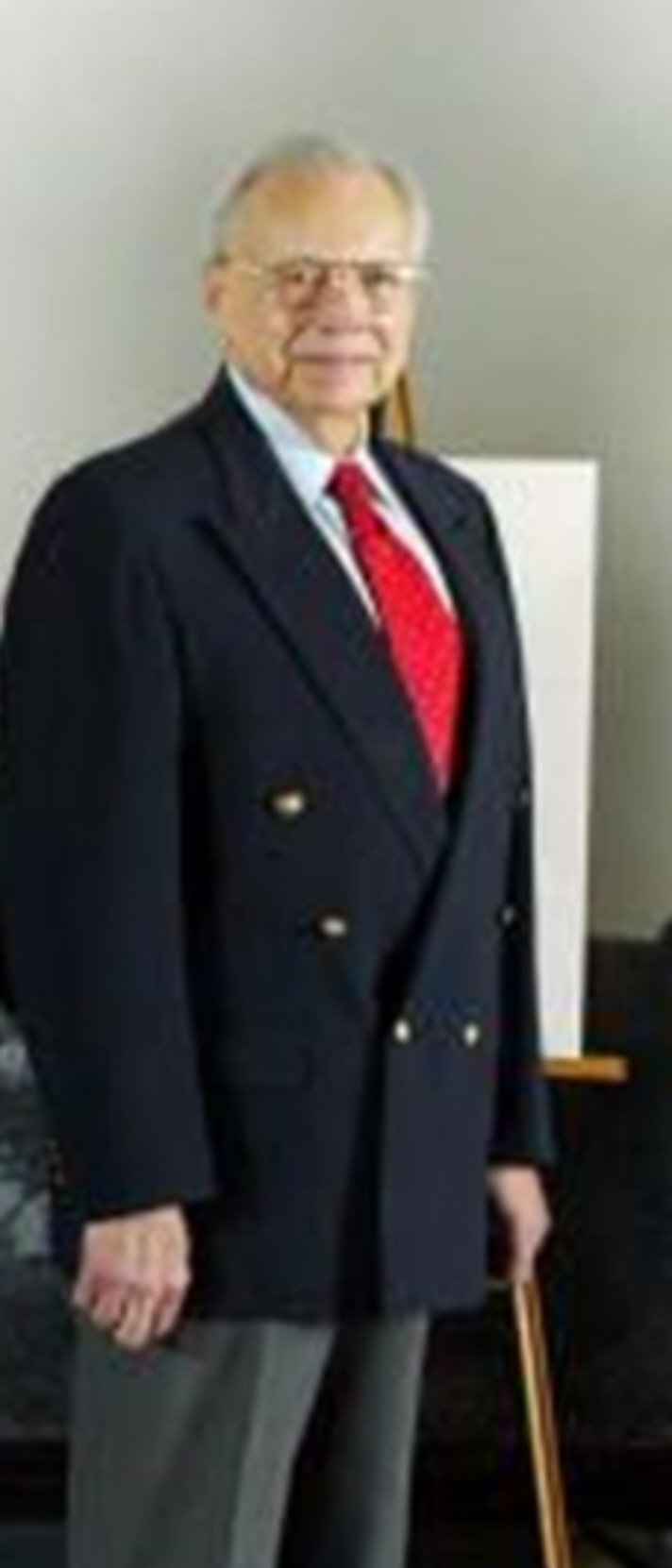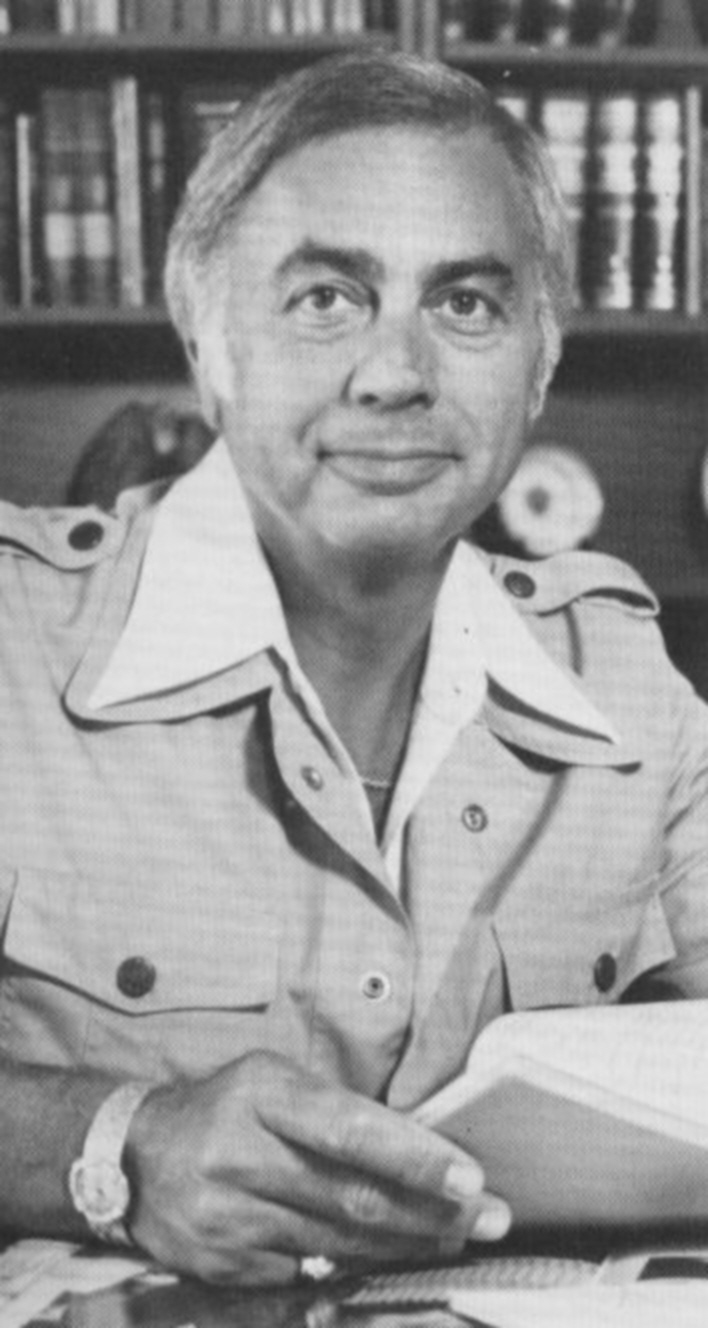| Bill
Loeb
 Bill
Loeb spent his life in the entertainment
business. He joined the giant talent agency
MCA in 1946 and within a year's time he
was put in charge of their San Francisco
office handling virtually all of the major
entertainment in Reno, Tahoe and Las Vegas.
He was in charge of the entire West Coast
area when he resigned from MCA in 1951 to
become a personal manager and advisor to
such popular talents as Lawrence Welk, Liberace,
Frankie Laine, Donald O'Connor, Jack Jones,
the Supremes, and dozens of others. He served
as a talent consultant and producer for
many industrial organizations as well, and
during the late sixties, he formed the International
Management Combine, which gave him the opportunity
to represent such noted English musical
acts as Donovan, Jethro Tull, Traffic, Humperdink
and Ten Years After. In the late 70s he
produced Bing Crosby's first live concerts
in over 40 years. Loeb co-produced the Robert
Vaughn one-man show FDR, which toured the
country, and was made into a motion picture
for major theatrical release. He also served
as entertainment consultant to five major
hotels through the country. Bill
Loeb spent his life in the entertainment
business. He joined the giant talent agency
MCA in 1946 and within a year's time he
was put in charge of their San Francisco
office handling virtually all of the major
entertainment in Reno, Tahoe and Las Vegas.
He was in charge of the entire West Coast
area when he resigned from MCA in 1951 to
become a personal manager and advisor to
such popular talents as Lawrence Welk, Liberace,
Frankie Laine, Donald O'Connor, Jack Jones,
the Supremes, and dozens of others. He served
as a talent consultant and producer for
many industrial organizations as well, and
during the late sixties, he formed the International
Management Combine, which gave him the opportunity
to represent such noted English musical
acts as Donovan, Jethro Tull, Traffic, Humperdink
and Ten Years After. In the late 70s he
produced Bing Crosby's first live concerts
in over 40 years. Loeb co-produced the Robert
Vaughn one-man show FDR, which toured the
country, and was made into a motion picture
for major theatrical release. He also served
as entertainment consultant to five major
hotels through the country.
He
was a past president of the Talent Managers
Association and at various times managed
Rosemary Clooney, Rose Marie and Margaret
Whiting.
The
genius behind "4 Girls 4"
 It
all started in the L.A. offices of the talent management company Loeb, Weems and
Breecher. It
all started in the L.A. offices of the talent management company Loeb, Weems and
Breecher.
Bill Loeb, who was then the manager for Rosemary Clooney, was casting
about for ideas to get some work for Clooney after her tour with Bing Crosby
concluded. By that time Bill had been associated
with Rosemary for about twelve years.
He finally came up with the idea of combining three of his
other clients, the television actress and nightclub singer Barbara McNair,
former child star and TV personality Rose Marie and 1940s pop singer Whiting,
together with Clooney for one large act. "Basically, I represented the girls as a manager for years – Rose Marie
for 28 years, Clooney for twelve, Margaret for ten or fifteen," Loeb
said. "In trying to keep them all busy and keep them all going and not get
repetitive or going to the same places over and over again, I just kind of sat
one day and pondered: What could I do to come up with an idea that would be
interesting and new and hadn’t been done before. Instead of trying to sell or
manage one individual, I’d put them all together and make one big act out of it.
"So I talked to the girls. At the time everyone was working but nobody was
setting the world on fire. I asked them if they wanted to try this and see if it
works. It would work if they’re all compatible and they wouldn’t kill each
other. You put four people together of that stature, and put them all in one
place, you have to see if the mechanics, the temperments, the egos would all
come together and meld into one interesting concept.
"It was just an idea that I thought of that nobody had done. Instead of
trying to sell one name, I’d put four together to give it four times the impact.
Each of them had a following; each of them had their own individual type of
performance. There wasn’t a conflict in any way. I looked at all of the pros and
cons and tried to weigh it all to see how it would come out. By the time I’d
really worked it out in my mind, I finally came up with the conclusion that it
was workable, and maybe worth pursuing."
Despite some early tension, the four "girls" got along fine and performed
well together. Barbara McNair left after the first gig, and Loeb and the three remaining performers
brainstormed over who would make a good replacement. They all came up with Helen O’Connell. Bill
had known Helen for years, though he hadn't
been as involved with her as the other three,
who he'd been with for forty, fifty
years total.
Helen O’Connell was offered the position of the Fourth Girl, and she
accepted and the show went on to break records all around the country for many
years.
Click
here
to read more about "4 Girls 4"
|